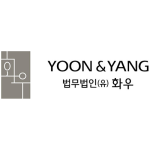Wonil Kim, Myung Soo Lee and Ju Yong Lee, of Yoon & Yang take a look at various proposed legislative attempts to relax the current prohibition on industrial companies owning internet-only banks
In June 2015, the government decided to introduce an internet-only banking system to revamp the financial service industry through the fusion of the financial and information and communication technology (ICT) sectors. In line with such a decision, it selected and provided preliminary licences to K Bank (led by mobile communication giant KT), and to Korea Kakao Bank (led by mobile platform business Daum-Kakao) in December 2015. K Bank obtained an official banking licence in December 2016 and Kakao Bank is currently waiting for the final decision on its application for an official licence filed early this year.
At that time, the government showed a strong intent in revamping the stagnant banking industry and service, which had remained without any entries of new banks for over 24 years, by introducing internet-only banks led by ICT companies. In order to implement these changes, the government conceded it was necessary to amend the Banking Act which prohibits industrial capital from controlling banks.
Control structure and key service provisions of internet-only banks |
||
Kakao Bank |
K Bank |
|
Capital |
KRW300 billion ($265 million) |
KRW250 billion |
Major shareholders (shareholding percentage) |
Korea Investment Holdings (50%), Kakao (10%*) and Kookmin Bank (10%) |
Woori Bank (10%), GS Retail (10%*), Hanwha Life Insurance (10%*), Danal (10%*) and KT (8%*) |
Key service provisions |
• mid-level interest rate loan (based on big data) • simplified wire transfer based on Kakao Talk • simplified payment without physical card, VAN, and PG • financial secretarial service based on Kakao Talk • Kakao Universal Point |
• mid-level interest rate loan (based on big data) • total simplified payment system (Express Pay) • simplified wire transfer based on mobile phone/email • asset management based on robo-advisor • real-time smart overseas wire transfer |
* denotes shareholding that allows voting rights only up to four percent. Source: Financial Services Commission |
||
Existing provisions on the separation of industrial and financial capitals
As discussed above, when the government established an internet-only banking system, it premised this on the relaxation of the provision on the separation of industrial and financial capital contained under the existing Banking Act.
The separation of financial and industrial capital refers to the broad principle that specifically bars industrial capital from owning a bank. In other words, non-financial corporations cannot own more than a certain percentage of shares in a bank, so as to prevent a bank from becoming a private safe of the corporation.
The current Banking Act prohibits a non-financial corporation – eg industrial capitals such as KT or Kakao – from owning shares with voting rights in excess of four percent of the total shares with voting rights in a bank. If a non-financial corporation seeks to own shares in excess of this, it may own up to 10% upon approval from the Financial Services Commission (FSC) but only under the condition that it will not exercise voting rights associated with such shares in excess of four percent. This is provided for under articles 16-2(1) and 16-2(2) of the Banking Act.
In other words, under the current statutory scheme, only a financial corporation can, in effect, become the largest shareholder of a bank. More narrowly, (i) securities firms and insurance companies, (ii) bank holding companies, and (iii) individual banks can become the largest shareholder of a bank. Though insurance companies and financial investment holding companies can also become the largest shareholder, they will be converted into bank holding companies when they own banks as subsidiaries.
Since the government's intent was to revamp the financial service industry by fusing the financial and ICT sectors, the broad premise of such a plan had to be based on allowing the ICT industry and other types of industrial capital to control banks. The relaxation of the provision separating financial and industrial capital is indivisibly connected with the successful introduction of the internet-only banking system.
However, when preliminary licences were granted to the K Bank and Kakao Bank, the discussion on amending the Banking Act was still at a nascent stage. Additionally, since a discussion within the National Assembly was essential for any statutory amendment, the licensing standard for internet-only banks was reviewed based on regulation under the existing Banking Act. Because of this, notwithstanding their actual leadership roles in K Bank and Kakao Bank, KT and Kakao currently only hold less than 10% of the shares in each bank, including a mere four percent shares with voting rights. KT and Kakao plan to become the largest shareholders in the respective banks through a transfer of issued shares and a capital increase once the Banking Act is amended.
Yet, contrary to the government's intent or expectations, with the operation of internet-only banks now a visible possibility, the provision on the separation of financial and industrial capital has not been amended, and industrial companies such as KT and Kakao are still unable to participate in additional capital increases in their respective internet-only banks. It is possible that their initial plans of taking controlling shares and assuming leadership roles in each bank through the relaxation of the provision on the separation of financial and industrial capital may fall through. In connection with the above, some have raised concerns that the previous legislative intent for introducing internet-only banks is being disregarded.
Though the National Assembly and the government have continuously discussed the possible amendment of the provision on the separation of financial and industrial capital, an adequate compromise had not been reached due to dissenting opinions from the Minjoo Party. However, recently, the Minjoo Party proposed its own draft of the Special Act on Internet-Only Banks, which permits industrial capital to own up to 34% in internet-only banks. As such, further progress in the discussion on the relaxation of the separation between financial and industrial capital may be expected.
Among the proposed amendments discussed in the table, the draft of the Special Act on Internet-Only Banks proposed by assemblyman Jae-Ho Jeong can be distinguished from other proposals in that it lowers the ceiling on the shareholding by non-financial corporations other than enterprise groups to 34%. In particular, this proposed legislation is also unique in that it applies only to internet-only banks licensed by the FSC by December 31 2019.
By comparison, the draft sponsored by assemblyman Gwan-Young Kim includes the following differentiating characteristics:
(i) The FSC must review the maintenance of licensing requirements every five years and, upon violation of any requirement, must provide a one-year probationary period to correct such a violation and revoke the licence if such a correction is not performed.
(ii) If an event occurs where the examination and licensing requirements need to be reviewed for internet-only banks and their large shareholders, such an event has to be reported to the National Assembly.
The State Affairs Committee (SAC) of the National Assembly began a combined examination of the relevant proposed legislations in November 2016, and the Senior Expert Advisory Office of the SAC has already submitted its review report to the SAC. Going forward, after the Subcommittee on Legislative Proposal Examination of the SAC passes a proposed law, it will be enacted after final votes in the plenary meeting of the SAC, the Judiciary Committee, and the regular legislative meeting of the National Assembly.
Major details of proposed legislation |
|||||
Major details of proposed amendments to the provision on the separation of financial and industrial capital are as follows: |
|||||
Proposed amendment to the Banking Act |
Special Act on Internet-Only Banks |
||||
Representative sponsor |
Assemblyman Seok-Jin Kang (Liberty Korea Party) |
Assemblyman Yong-Tae Kim (Bareun Party) |
Assemblyman Jae-Ho Jeong (Minjoo Party) |
Assemblyman Gwan-Young Kim (People Party) |
Assemblyman Eui-Dong Yoo (Bareun Party) |
Proposal date |
June 16 2016 |
July 8 2016 |
November 4 2016 |
November 11 2016 |
November 16 2016 |
Definition of internet-only bank |
A bank engaged in the banking business based on electronic financial transactions |
||||
Statutory minimum capital |
KRW25 billion |
||||
Ceiling on shareholding |
50% |
50% |
34% |
34% |
50% |
Major details |
• excludes enterprise groups restricted from cross-shareholding under the Monopoly Regulation and Fair Trade Act |
• prohibits provision of loans to large shareholders |
• excludes the enterprise groups prohibits providing loans to large shareholders • prohibits the acquisition of shares issued by large shareholders • prohibits credit offering in excess of the weighted average interest rate prescribed by the FSC • applies to internet-only banks licensed by December 31 2019 |
• excludes enterprise groups prohibits providing loans to large shareholders • prohibits acquisition of shares issued by large shareholders • reevaluates licensing requirements every five years • report to the National Assembly if requirements for review and licensing of internet-only banks and large shareholders are triggered • prescribes detailed surcharges and penalties |
• prohibits providing loans larger than 10% of the bank’s own assets to large shareholders |
Outlook
During the public hearing on legislation and amendments to the Act on the Establishment of Internet-Only Banks held in the National Assembly on February 20 2017, some participants opined that a discussion on amending the provision separating financial and industrial capital should be resumed after reviewing how K Bank and Kakao Bank operate in the next one-year period. As such, even within the political circle, a complete understanding has not been reached – hence, the passage of the proposed amendment is doubtful.
The internet-only banking system was introduced to revamp the stagnant financial industry by fusing the financial and the ICT sectors. Additionally, K Bank and Kakao Bank offer niche products, such as mid-level interest rate loans, and are also looking to provide other innovative services relying on big data and other technologies. Because of this, to engage in the new business of internet-only banking, a company must secure sufficient capital, something with has surfaced as a more persuasive argument in support of amendments to the provision on separation of financial and industrial capital.
Strictly speaking, however, KT and Kakao can increase their capital in internet-only banks by making additional investments in tandem with other shareholders – even under the existing Banking Act. However, such additional investments would entail the caveat that KT and Kakao maintain their existing shareholding percentages in each bank without any increase. But this entails persuading dozens of other shareholders of different sizes, business types, and interests to agree on a further capital increase.
Meanwhile, regardless of the implementation of relevant proposed legislation and/or amendments, K Bank and Kakao Bank are actually hurrying to prepare for their operation by hiring new employees and establishing business systems. Opposition parties, such as the Minjoo Party, have proposed their own drafts in connection with the relaxation of the ceiling on shareholding by non-financial corporations, the application of which is limited to internet-only banks, after protracted disputes. Hence, there is a growing interest in whether the new government, which would be inaugurated in May, would pass the relevant legislation and/or amendment.
About the author |
||

|
|
Wonil KimPartner, Yoon & Yang Seoul, South Korea T: +82 2 6003 7511 W: yoonyang.com Wonil Kim is a partner at Yoon & Yang. His main areas of practice include intellectual property, broadcasting, and information and telecommunications. He has lectured as a professor at the Patent Training Institute of the Seoul Bar Association, and served as a member of the Competition Policy Advisory Board for the Korea Fair Trade Commission. After graduating from Seoul National University College of Law, he received an LLM from the University of Washington School of Law. |
About the author |
||

|
|
Myung Soo LeePartner, Yoon & Yang Seoul, South Korea T: +82-2-6003-7095 W: yoonyang.com Myung Soo Lee is a partner at Yoon & Yang. His main practice areas are finance, securities, and insurance. He worked at the Financial Supervisory Service for 10 years as the head of the legal department and corporate disclosure department. He provides expert legal advice on the licensing of financial businesses, supervision and inspections of financial institutions, corporate disclosures, M&A involving listed companies, and unfair trade practices. He has served as a legal advisory member for the Financial Services Commission and as a legal counsel for the Financial Supervisory Service. |
About the author |
||

|
|
Ju Yong LeePartner, Yoon & Yang Seoul, South Korea T: +82-2-6003-7546 W: yoonyang.com Ju Yong Lee is a partner at Yoon and Yang. Prior to joining the firm, he held several positions at the Finanical Supervisory Service, including in the non-banking supervision department (supervision on mutual finance, savings banks, credit card companies, finance houses, financial leasing companies, investment banks, credit unions), enforcement review office, capital market investigation department 2 and legal affairs office. His main practice areas include legislation regarding finance, M&A, corporate law, corporate advice, and corporate litigation. Based on his expertise in financial regulation and supervision, Lee provides realistic, tailored, and comprehensive legal advice that financial institutions and corporations need and achieves remarkable results in various significant litigations in the fields of M&A, commerce, finance, securities and insurance. |

